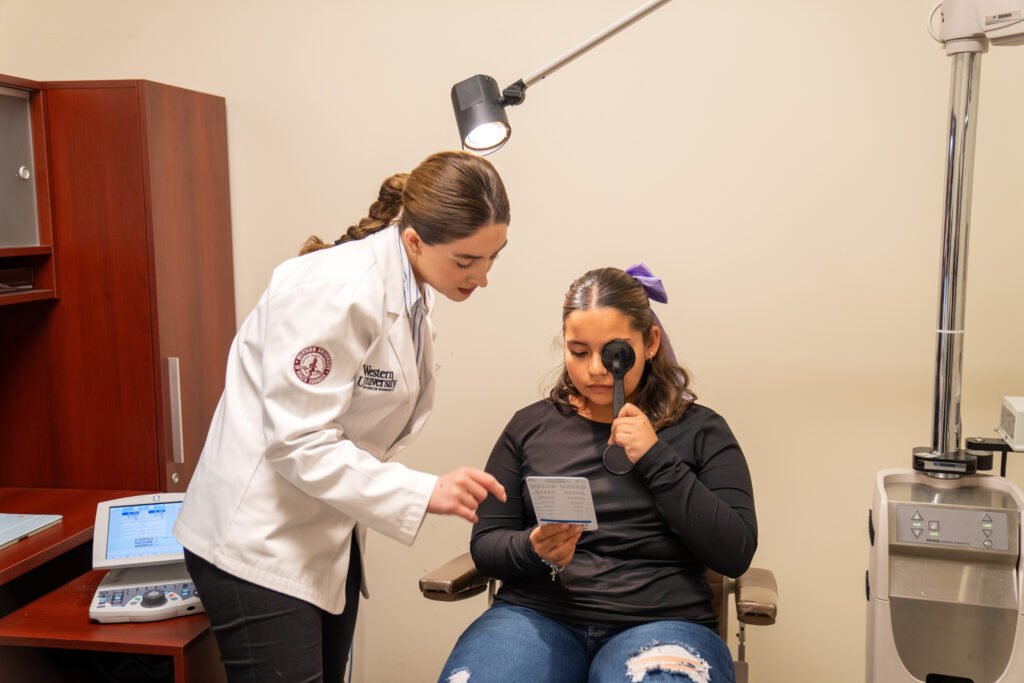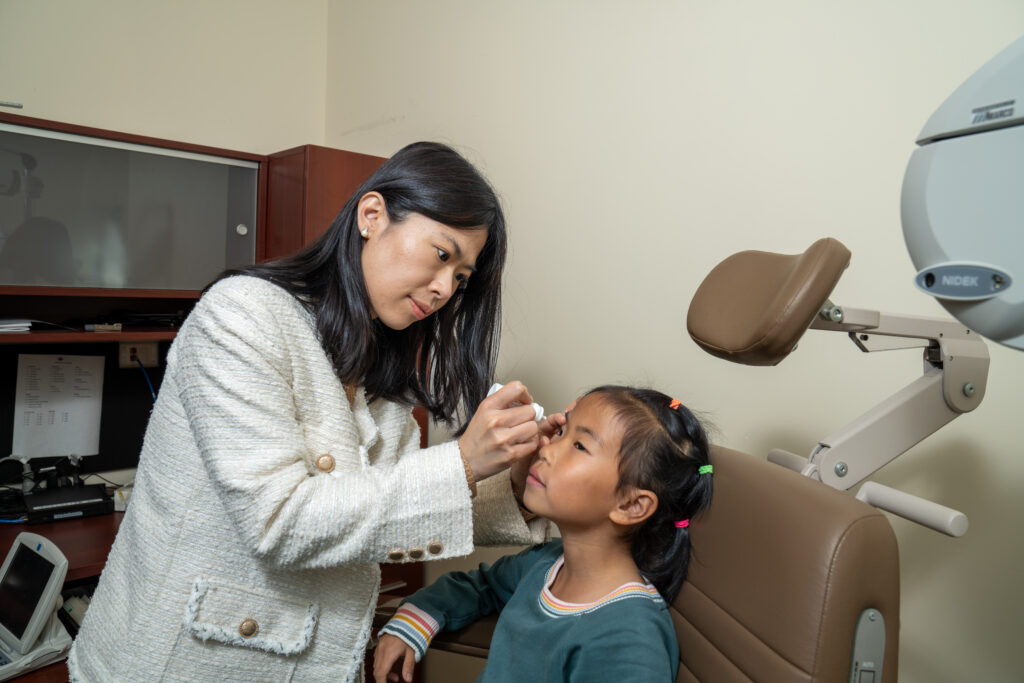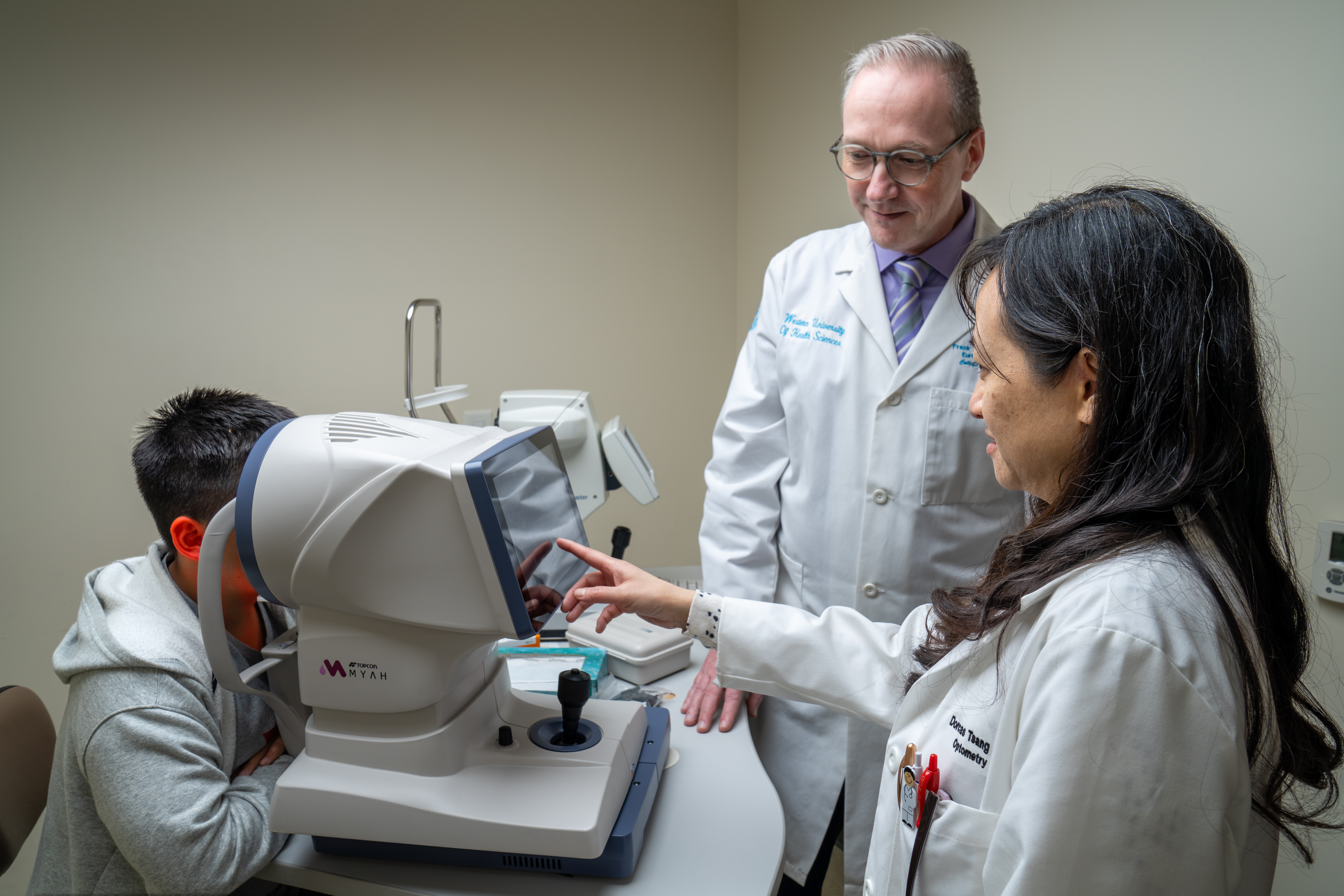Shianne Brannan, a third-year student at Western University of Health Sciences, has been passionate about optometry since the fifth grade. Her interest began with a science project on the eyes, exploring optical illusions and blind spots. This early interest set the stage for her future in optometry. Growing up, Shianne also played softball, which highlighted the importance of vision and further fuelled her passion for optometry. This blend of athletic and academic interests solidified her commitment to the field.
“I shadowed at a vision therapy office, which I loved because optometry is much more than glasses,” she says. “You can rehabilitate vision, which piqued my interest in optometry. Today, I’m a third-year optometry student at WesternU Optometry.”
Nestled in Southern California, Western University of Health Sciences is one of the most comprehensive graduate schools for the health professions. For over 45 years, the university has championed a humanistic approach to education, a philosophy particularly evident in its College of Optometry.

At the Western University of Health Sciences, students gain clinical experience and interact with patients from Year One. Source: Western University of Health Sciences
The optometry programs are designed to equip students with clinical skills that emphasize patient-centered care and collaboration. The Doctor of Optometry (OD) program places a strong focus on optometric rehabilitation, including neuro-optometry, vision therapy, low vision rehabilitation, and providing care for people with developmental disabilities. Supported by dedicated clinical preceptors, faculty members, and advanced technology, you’ll gain hands-on clinical experience that not only provides technical proficiency but also hones your essential soft skills. These include self-awareness, excellent verbal and interpersonal communication abilities, and a deep commitment to compassionate healthcare.
Students can participate in one of the largest Interprofessional Practice and Education (IPE) programs in the country. This program allows students from various health professions to learn about, from, and with each other, fostering effective collaboration and improving health outcomes. Such team-based practice is crucial for preparing students for real-world clinical environments, where interdisciplinary teamwork is key. Just ask Dr. Sahil Dosaj, class of 2013.
“By sharing some classes with students from other medical professions, it helps us understand other medical specialties,” he says. “I believe that this helps us work together with other medical professionals to take care of patients, not only as individuals but also as a cohesive medical team.”
More importantly, WesternU’s faculty goes the extra mile to ensure student success. Their open-door policy and genuine dedication create a supportive learning environment. Diva Zeckua, a student of the class of 2026, can attest to this. “I’ve received immense support from faculty members, along with crucial encouragement and motivation,” she says. “This support is vital in any medical field, as the journey can be tough and demanding. The mentorship at WesternU College of Optometry is invaluable, instilling in us the confidence that we will become the doctors we aspire to be.”

Western University offers interprofessional education, equipping graduates to excel in collaborative healthcare environments of the future. Source: Western University of Health Sciences
Pair that with experiential learning as early as Year One, and you’ll benefit from a rich learning experience. “Our education here is different because we start seeing patients and gaining clinical experience from Year One, unlike some other schools where students only begin their clinical experience in their third year,” Brannan says.
This allows students to become more confident as the more patients they see, the more prepared they will be upon graduation. “They prepared me for many of the things we would encounter clinically, and I believe that preparation helped me in some of the jobs I’ve had,” says Dr. Ashley Suplee, Class of 2015. “Using that experience, I was able to see patients and learn over the years how to handle different types of patients.
WesternU’s supportive environment extends beyond academics. The university encourages students to take on leadership roles. For example, Brannan has held the position of OD 2026 Class President, leading a supportive team of student representatives. Previously, she served as president of the NORA/Sports Vision Club, where her athletic background provided a perfect bridge between the student body and the world of sports vision.
WesternU actively facilitates volunteer opportunities, and Brannan has leveraged these to give back and enhance her leadership skills. Her past involvement with the club allowed her to apply her knowledge in practical settings. One of the highlights of her involvement was organizing vision screenings for the baseball and softball teams at her alma mater, Cal State Fullerton. This experience, facilitated by WesternU’s support, enabled her to give back to the sports community while honing her optometric skills.
If you’re considering a career in optometry, you should consider WesternU Optometry. Why? It was WesternU Optometry’s training and support that played a major role in Dr. Dosaj’s recognition by Newsweek as one of America’s Best Doctors. “Western University has made me who I am,” he says. This is where I received my training. I was very fortunate and blessed to be nominated by my peers and my patients as one of America’s top eye doctors. If it weren’t for WesternU, I wouldn’t have got that.”
Follow the Western University of Health Sciences on Facebook, X, Instagram, YouTube, and LinkedIn










